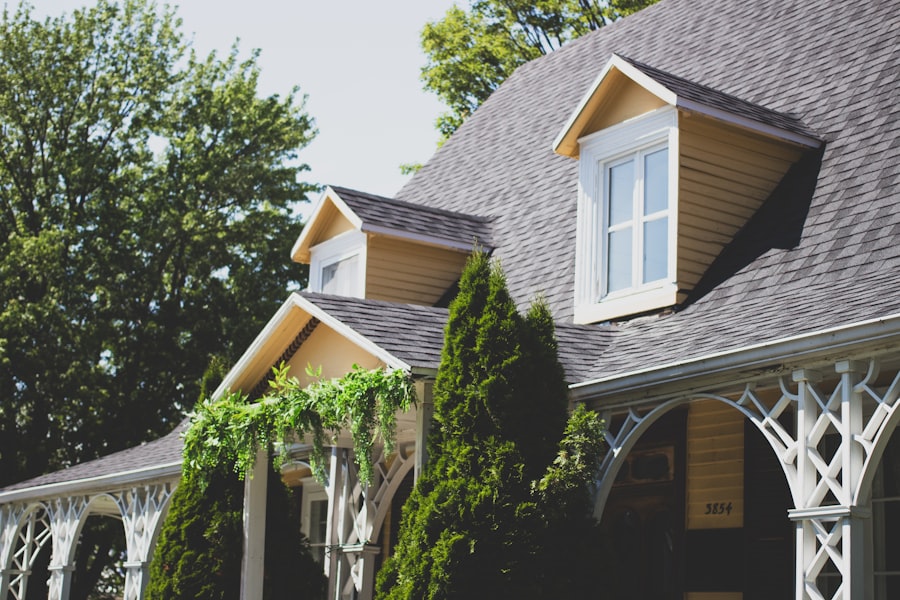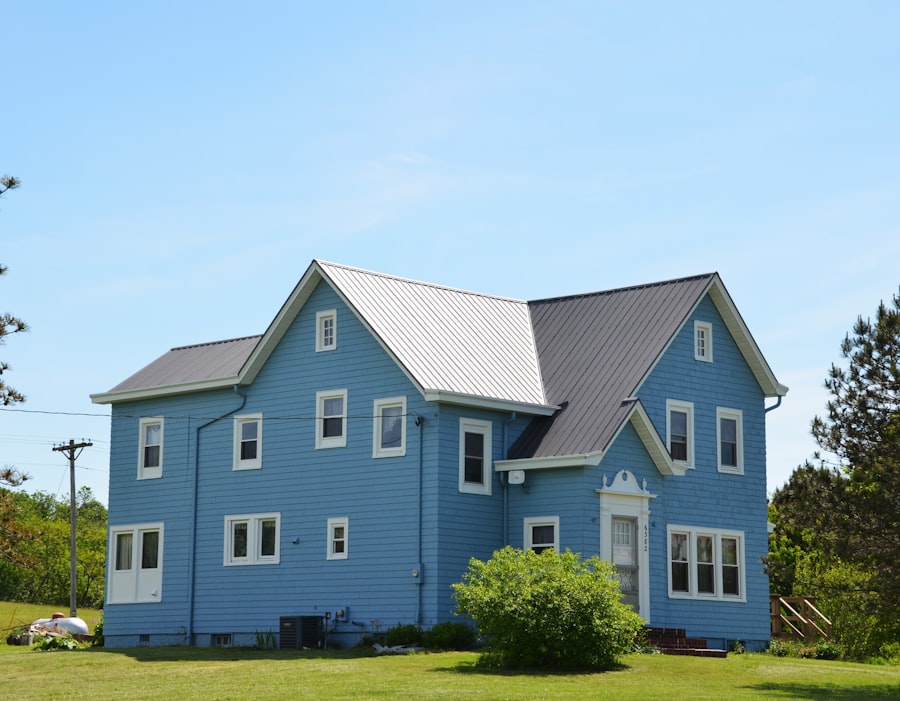Homeowners insurance is a critical component of financial security for anyone living in a trailer home. Unlike traditional houses, trailer homes, or manufactured homes, often face unique risks and challenges that necessitate specialized coverage. These homes can be more susceptible to certain types of damage, such as wind and storm-related incidents, due to their construction and mobility.
As a result, having a robust homeowners insurance policy is essential for protecting your investment and ensuring peace of mind. Moreover, trailer homes often serve as primary residences for many individuals and families. This makes it imperative to safeguard not only the structure itself but also the personal belongings within.
Homeowners insurance provides a safety net against unforeseen events such as theft, fire, or natural disasters. In the absence of adequate coverage, homeowners may find themselves facing significant financial burdens in the event of a loss. Therefore, understanding the importance of homeowners insurance for trailer homes is crucial for anyone residing in these unique living spaces.
Key Takeaways
- Homeowners insurance for trailer homes is important for protecting your investment and personal belongings.
- Coverage options for trailer homes include property coverage, liability coverage, and additional living expenses coverage.
- Factors that impact the cost of homeowners insurance for trailer homes include the location of the home, the age and condition of the home, and the homeowner’s claims history.
- When finding the right homeowners insurance policy for your trailer home, consider the coverage options, the insurance company’s reputation, and the cost of the policy.
- To protect your trailer home from common risks and hazards, consider installing safety features, maintaining the home, and securing the property.
Understanding the Coverage Options for Trailer Homes
When it comes to homeowners insurance for trailer homes, understanding the various coverage options available is essential. Standard policies typically include dwelling coverage, which protects the structure of the trailer itself against perils like fire, vandalism, and certain natural disasters. However, it is important to note that not all policies are created equal; some may exclude specific risks that are particularly relevant to trailer homes, such as damage from high winds or flooding.
In addition to dwelling coverage, personal property coverage is another vital component of homeowners insurance. This aspect of the policy protects personal belongings inside the trailer, including furniture, electronics, and clothing. Homeowners should carefully assess the value of their possessions and consider whether additional coverage is necessary to ensure that they are fully protected in case of a loss.
Liability coverage is also an important consideration; it protects homeowners from legal claims arising from injuries or damages that occur on their property. Understanding these coverage options allows trailer home residents to tailor their insurance policies to meet their specific needs.
Factors that Impact the Cost of Homeowners Insurance for Trailer Homes

Several factors influence the cost of homeowners insurance for trailer homes, making it essential for homeowners to be aware of these variables when shopping for a policy. One significant factor is the age and condition of the trailer home itself. Older models may be more prone to damage and may not meet current building codes, leading to higher premiums.
Additionally, the materials used in construction can impact costs; for instance, homes built with more durable materials may qualify for lower rates. Location is another critical factor affecting insurance premiums. Trailer homes situated in areas prone to natural disasters—such as hurricanes, floods, or wildfires—may face higher insurance costs due to the increased risk of damage.
Furthermore, proximity to emergency services can also play a role; homes located near fire stations or police departments may benefit from lower rates due to reduced response times in emergencies. Understanding these factors can help homeowners make informed decisions when selecting an insurance policy that fits their budget.
Tips for Finding the Right Homeowners Insurance Policy for Your Trailer Home
| Factors to Consider | Importance |
|---|---|
| Location of the Trailer Home | High |
| Replacement Cost of the Trailer Home | High |
| Coverage for Personal Belongings | Medium |
| Liability Coverage | Medium |
| Deductible Amount | Low |
Finding the right homeowners insurance policy for a trailer home requires careful consideration and research. One effective strategy is to shop around and obtain quotes from multiple insurance providers. Each company may offer different coverage options and pricing structures, so comparing these can help homeowners identify the best fit for their needs.
Additionally, working with an insurance agent who specializes in manufactured homes can provide valuable insights into which policies offer the most comprehensive coverage. Another important tip is to assess your specific needs and risks before finalizing a policy. Homeowners should take inventory of their personal belongings and consider any unique risks associated with their location or lifestyle.
For example, if a homeowner frequently travels or parks their trailer in different locations, they may want to consider additional coverage options that protect against theft or damage while on the road. By tailoring the policy to individual circumstances, homeowners can ensure they have adequate protection without overpaying for unnecessary coverage.
How to Protect Your Trailer Home from Common Risks and Hazards
Protecting a trailer home from common risks and hazards involves proactive measures that can mitigate potential damage and loss. One of the most effective strategies is to invest in quality anchoring systems that secure the trailer to its foundation or ground. This is particularly important in areas prone to high winds or severe weather conditions, as proper anchoring can prevent overturning or displacement during storms.
Additionally, regular maintenance plays a crucial role in safeguarding a trailer home. Homeowners should routinely inspect roofs, windows, and doors for signs of wear or damage and address any issues promptly. Installing smoke detectors and carbon monoxide detectors can also enhance safety by providing early warnings in case of fire or gas leaks.
Furthermore, creating an emergency plan that includes evacuation routes and communication strategies can prepare residents for unexpected events, ensuring they are ready to respond effectively.
The Claims Process for Trailer Homeowners Insurance

Navigating the claims process for homeowners insurance can be daunting, especially after experiencing a loss or damage to a trailer home. The first step in this process is to report the incident to the insurance company as soon as possible. Most insurers have specific timeframes within which claims must be filed, so prompt action is essential.
Homeowners should document the damage thoroughly by taking photographs and making detailed notes about what occurred. Once the claim is submitted, an adjuster will typically be assigned to assess the damage and determine the payout amount based on the policy’s coverage limits. It is crucial for homeowners to maintain open communication with their insurer throughout this process and provide any requested documentation promptly.
Understanding the terms of the policy can also help homeowners advocate effectively for their claims, ensuring they receive fair compensation for their losses.
Additional Coverage Options for Trailer Homes
In addition to standard homeowners insurance policies, there are several additional coverage options that trailer home residents may want to consider. One such option is flood insurance, which is particularly important for those living in flood-prone areas. Standard homeowners policies often do not cover flood damage, so obtaining separate flood insurance can provide essential protection against this risk.
Another valuable option is personal property replacement cost coverage. This type of coverage ensures that homeowners receive compensation based on the current market value of their belongings rather than their depreciated value at the time of loss. This can be especially beneficial for those with valuable items such as electronics or collectibles.
Additionally, some insurers offer specialized policies tailored specifically for manufactured homes that address unique risks associated with these types of dwellings.
The Benefits of Reviewing and Updating Your Trailer Homeowners Insurance Policy
Regularly reviewing and updating a homeowners insurance policy is crucial for ensuring adequate protection over time. Life circumstances can change significantly; for instance, renovations made to the trailer home or changes in personal belongings may necessitate adjustments in coverage limits. By conducting annual reviews of their policies, homeowners can identify any gaps in coverage and make necessary updates.
Furthermore, changes in local regulations or market conditions can impact insurance rates and available coverage options. Staying informed about these developments allows homeowners to take advantage of potential savings or enhanced protection features offered by different insurers. Ultimately, maintaining an up-to-date homeowners insurance policy ensures that trailer home residents are well-prepared for any unforeseen events that may arise in the future.

